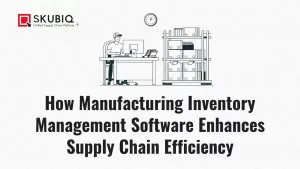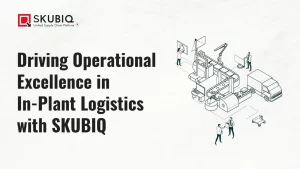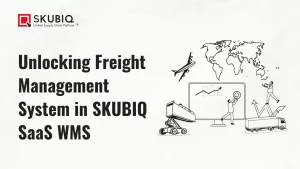In the realm of supply chain strategy and effective inventory management, Consignment Inventory stands out as a pivotal concept. Understanding its dynamics can revolutionize the way businesses handle their inventory cost and logistics. This comprehensive guide delves deep into the intricacies of Consignment Inventory, shedding light on its significance, benefits, challenges, and best practices.
What is Consignment Inventory?
Consignment Inventory refers to a business arrangement where a supplier or manufacturer maintains ownership of goods stocked at a retailer’s or distributor’s location until the product is sold. Essentially, the supplier retains control over the inventory until the point of sale occurs. In this setup, the retailer or distributor acts as a selling agent rather than a purchaser, alleviating the financial burden of purchasing and storing inventory.
The Significance of Consignment Inventory in Supply Chain Strategy
Incorporating Consignment Inventory into a supply chain strategy offers several advantages. Firstly, it reduces the upfront costs for retailers and distributors since they don’t have to purchase inventory outright. This can lead to significant savings in terms of inventory cost and inventory carrying in logistics. Secondly, it allows businesses to free up capital that would otherwise be tied up in inventory, enabling them to allocate resources more efficiently. Thirdly, Consignment Inventory promotes better inventory management by aligning supply with demand more effectively, thus reducing the risk of overstocking or stockouts.
Understanding Inventory Cost and Inventory Carrying in Logistics
Inventory cost and inventory carrying in logistics are critical considerations for any business. Consignment Inventory directly impacts these factors by shifting the burden of holding inventory from the retailer or distributor to the supplier. By doing so, it reduces the carrying costs associated with storing inventory, such as warehousing expenses, insurance, and obsolescence risk. This can result in substantial savings for businesses, especially those operating in industries with high inventory turnover rates.
Exploring Vendor Managed Inventory (VMI) as a Form of Consignment Inventory
Vendor Managed Inventory (VMI) is a specific implementation of Consignment Inventory where the supplier takes on additional responsibilities, such as monitoring stock levels and replenishing inventory based on demand signals from the retailer or distributor. This proactive approach to inventory management further streamlines the supply chain, reduces stockouts, and enhances overall efficiency. VMI fosters closer collaboration between suppliers and their customers, leading to better coordination and responsiveness to market dynamics.
Benefits of Consignment Inventory
The adoption of Consignment Inventory offers a multitude of benefits for businesses across various industries. Some of the key advantages include:
1. Reduced Financial Risk
Since retailers and distributors don’t own the inventory until it’s sold, they are not exposed to the risk of holding obsolete or slow-moving stock.
2. Improved Cash Flow
By eliminating the need to purchase inventory upfront, Consignment Inventory frees up capital that can be invested in other areas of the business.
3. Enhanced Flexibility
Businesses can adjust their inventory levels more dynamically in response to changing market conditions, thereby minimizing excess inventory and maximizing sales opportunities.
4. Stronger Supplier Relationships
Consignment Inventory encourages closer collaboration between suppliers and their partners, fostering trust and long-term partnerships.
Challenges and Considerations
While Consignment Inventory offers numerous benefits, it also comes with its own set of challenges and considerations. These may include:
- Risk of Stockouts: Over-reliance on Consignment Inventory without adequate monitoring and replenishment processes can lead to stockouts, potentially resulting in lost sales and customer dissatisfaction.
- Complexity of Implementation: Establishing a Consignment Inventory arrangement requires careful planning and coordination between the supplier and the retailer or distributor. Clear agreements and communication channels are essential to ensure smooth operations.
- Potential Disputes: Disagreements may arise regarding ownership, responsibility for damaged goods, or accounting practices. It’s crucial to address these issues upfront and establish clear terms and protocols.
Best Practices for Implementing Consignment Inventory
To maximize the benefits of Consignment Inventory while mitigating potential risks, businesses should follow these best practices:
- Define Clear Terms: Establish comprehensive agreements outlining the terms of the Consignment Inventory arrangement, including ownership, responsibilities, pricing, and dispute resolution mechanisms.
- Invest in Technology: Leverage inventory management software and data analytics tools to track inventory levels, monitor sales trends, and optimize replenishment processes.
- Communicate Effectively: Maintain open and transparent communication channels between all parties involved, sharing relevant information and updates to ensure alignment and collaboration.
- Monitor Performance: Regularly evaluate the performance of the Consignment Inventory arrangement, identifying areas for improvement and making adjustments as necessary to optimize outcomes.
Conclusion
Consignment Inventory represents a powerful strategy for businesses seeking to optimize their supply chain, reduce inventory costs, and enhance inventory management practices. By shifting the burden of inventory ownership to suppliers and fostering closer collaboration between partners, Consignment Inventory enables businesses to operate more efficiently and respond more effectively to market dynamics. However, successful implementation requires careful planning, clear communication, and a commitment to continuous improvement. With the right approach and best practices in place, Consignment Inventory can deliver significant benefits and drive sustainable growth for businesses across industries.



